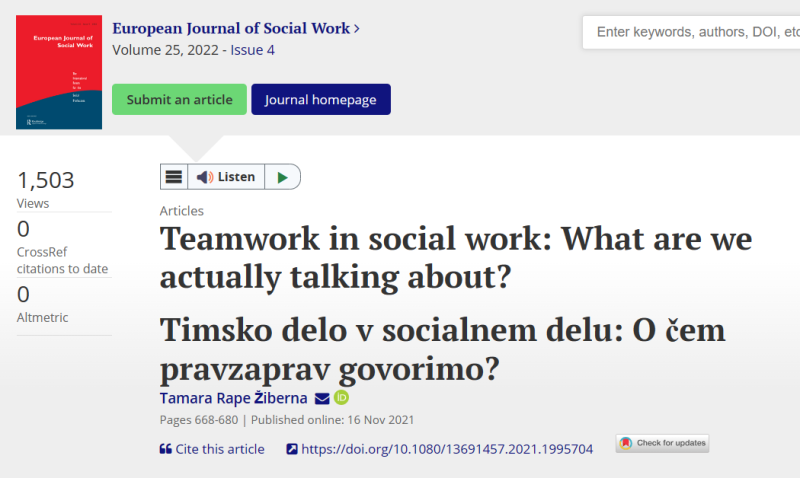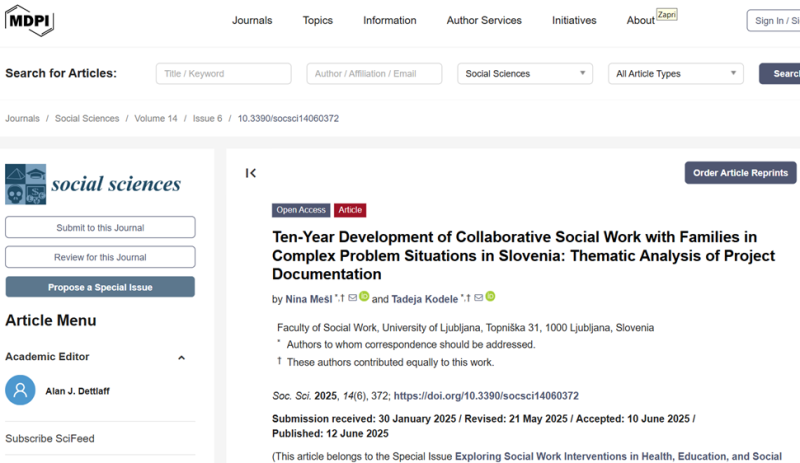Literature

Abstract
The article presents an example of social work education, in which reflexive practice learning was used to help students work competently in professional practice. Within an action research project, new forms of mentoring support for students working with families facing multiple challenges were developed as part of their practice learning. This paper presents the results of a qualitative analysis of the students&rsquo reflections on mentoring meetings. Content analysis was used for data analysis. The analysis shows that practice learning should be framed as a reflexive dialogue between mentors and students. Students need opportunities to share experiences and expand their knowledge with other students in small mentoring groups. The continuous and concrete support that the mentoring group provided to the students in practice enabled them to deal with the sense of uncertainty that often arises in collaborative processes of help.

ABSTRACT
Teamwork is not a new topic in social work. In a bid to further advance the field, this paper has three aims: to identify the factors most relevant to the definition of teamwork in social work, to define a team in social work and propose a definition of teamwork in social work, and to provide a typology that accounts for important aspects of teamwork in social work. The focused review (relying on certain aspects of a scoping study and systematic review) of 84 papers revealed four main factors of relevance to the definition of teamwork and team in social work: size, composition, aim (purpose) and the role (participation) of users. Definitions are given of team and teamwork in social work that are in harmony with contemporary concepts of social work like a working relationship (co-creation). A typology entailing three of four identified important factors is proposed while four types of teamwork in social work are illustrated with examples from a small European country.

ABSTRACT
Social work with families has developed in response to the needs of people in the community but has moved away from them over the years of specialisation. The neoliberalisation of social work has eclipsed the processes of collaboration with people, which are a prerequisite for hearing their voices and establishing a partnership. In Slovenia, over the last 10 years, we have been looking for ways to bring social work with families in complex problem situations back into the community and to prioritise the processes of co-creating the desired outcomes in national and international projects. The most important milestones of the development, identified by the thematic analysis of the project documentation (58 documents) of seven projects, are presented. Several themes were interwoven in the development and implementation of change: knowledge development; relevance of the institutional context; (micro-)innovation in social care; development of projects with practitioners and family representatives; broader social context centred on family support. Ten years of development in the field confirms that complex questions require complex answers, which must be (co-)created.
Discussion (0) Sign in to comment
No comments was found!